Arkady and Boris Strugatsky
MONDAY STARTS ON SATURDAY
But what is strangest and most incomprehensible of all, is how authors can choose such subjects. I confess I find this totally incomprehensible, it is as if… no, no, I don’t understand it at all.
—Nikolai Gogol
Every now and then one chances upon a novel, little known in the West, that deserves to sell more copies than cookbooks. Monday Starts on Saturday is one such novel.
As to why it is so little known in Anglophone territories, I’m not sure I can understand. It is probably true that the Strugatsky brothers are best known in the West for their great science fiction novel Roadside Picnic (1972), made into the almost unbearably powerful film Stalker (1979) by Russian director Andrei Tarkovsky. That film has perhaps overlaid Western perceptions of the sort of books the Strugatskys wrote. In fact the original Roadside Picnic novel is considerably more varied and perky than Tarkovsky’s cinematic masterpiece; in fact, that’s true of all the novels written by these two giants of Russian science fiction. Their output was large and varied, but they were always inventive, charming, thought-provoking, and wonderful writers. And Monday Starts on Saturday is not just an ingenious and gripping read but simply a delight from start to finish. Some novels provoke admiration, some a cooler and more distanced respect. This is a novel with which to fall in love.
Sasha is a young computer programmer from Soviet-era Leningrad, driving north to meet up with friends for a tour of the unspoiled nature of Karelia, the region of Russia that borders on Finland. The novel was written in the mid-1960s, when computers were brand new and the size of a small house. So Sasha’s job is rather more cutting edge and high tech than is implied by the term nowadays. He picks up two hitchhikers, who persuade him to take a job with their employer, the National Institute for the Technology of Witchcraft and Thaumaturgy, or NITWiT. (There’s a similar joke in the original Russian: the name Nauchno-Issledovatelskiy Institut Charodeystva i Volshebstva is abbreviated to “NIIChaVo,” which sounds like nichevo , Russian for “It doesn’t matter!” or “Don’t mention it!”) After initial reluctance, Sasha agrees. He goes on to have a series of brilliant, wrong-footed, and often hilarious adventures.
The Institute utilizes and researches magic, treated here as a peculiar and unpredictable branch of science. Much of the humor depends on the way the Strugatsky brothers combine a well-observed portrayal of a typical academic community with the sort of magical characters and artifacts found in myth and Russian folklore.
The brothers knew whereof they spoke. When they were writing Monday Starts on Saturday , Boris was still working as an academic astronomer and computer engineer (he became a full-time writer in 1966), and Arkady’s linguistic training meant he had a great deal of experience working for large Soviet-era organizations. However colorful and inventive the magical elements of this story, what makes the novel so vivid is its authors’ profound understanding of how these sorts of human organizations function. Function isn’t really the right word, actually. The Institute is gloriously, colorfully, and perfectly believably dys functional. The scholars of the Department of Absolute Knowledge, for instance, devote themselves to the study of the infinite. Since the proper study of such a thing would require infinite time, it doesn’t matter whether they work or don’t work, except that working would have the side effect of increasing the entropy of the cosmos. So they do no productive work. Most universities today follow a similar, if unacknowledged, logic.
Readers sometimes draw comparison between this novel and the Harry Potter books. The parallels are certainly clear: both are comically inventive accounts of a group of people studying magic at an official establishment located in the north. I suppose it is possible J. K. Rowling was aware of the Strugatskys’ tale and drew some inspiration from it, but it must be acknowledged that the flavor of this novel is quite different from that of the Potter series. For Rowling’s characters, magic is a coherent system, complex but graspable and taken very seriously by those who study it. For the Strugatskys magic is far stranger and more random, although equally delightful. The gigantic talking pike that grants wishes, the mermaid in the tree, the cat who can remember only the beginning of stories, the magic coin that returns to your pocket when you spend it (but not if you accidentally drop it), the sofa that can translate dreams, the motorcycle that can zoom its rider into the imagined futures of science fiction—it’s all superbly inventive and charming and imaginative. But it is also written in a way that deliberately confounds the reader’s expectations, more P. K. Dick than J. K. Rowling. Portions of the novel remind me a little of Terry Pratchett, for the Strugatskys’ many colorful wizards, vampires, and officers, pompous or officious or simply strange, read rather like Discworld characters. But, again, Pratchett is in the business of providing coherent story lines and an identifiable ethical throughline in his novels. The Strugatskys don’t really see the world that way, and their novel is more morally open ended, more episodic. In short, Monday Starts on Saturday is profoundly, beautifully left field. It’s so left field it pretty much passes out of the field altogether and reemerges, unexpectedly, right .
The Institute attempts to investigate magic scientifically; but it is in the nature of magic, as this novel conceives it, to resist all modes of systematization. Accordingly we might want to read the book as a satire on scientific hubris, or more specifically on science as it was practiced in the Soviet Union. One major character in the novel, Ambrosius Ambroisovich Vybegallo, is based loosely on the infamous Soviet “scientist” Trofim Lysenko, and Vybegallo’s grandiose and disastrous experiments are hilariously described here. But calling the novel “a satire on science” makes it sound much drier and less palatable than it actually is. I prefer to read it as an exploration of the place of magic in humanity’s myths and stories.
It’s hard to deny that magic is the default mode of human storytelling. All the old myths and poems contain transcendent magical powers and transitions; medieval romances and epics are full of fantastical and miraculous things. It wasn’t until the eighteenth and nineteenth centuries that a mode of storytelling arose in which nothing magical happened and verisimilitude became the watchword. We sometimes call it realism. I have nothing against realist novels, as it happens; I just think we need to acknowledge that they are the aberration in the larger context of humanity’s appetite for stories.
For the moment, however, this rejection of the power of miracles extends even to our stories about the miraculous. One feature that Rowling’s and Pratchett’s series share with pretty much all other narratives predicated upon “magic” is that the magic has rules . This is because “magical thinking” has rules—psychological rules, that is. Magical thinking is that near-ubiquitous human state of mind at work in superstition, ritual, prayer, and religion, as well as obsessive-compulsive behaviors—the belief that there is a causal relationship between human actions and beliefs and cosmic eventuality. I wonder what it would be like to write a fantasy novel in which the magic has no rules at all . That would be bracing, and might bring out this buried truth: millions who think they love fantasy because of the magic actually love it because of the rules.
Читать дальше


![Братья Стругацкие - Путь на Амальтею. Стажеры [сборник; litres]](/books/34218/bratya-strugackie-put-na-amalteyu-stazhery-sborn-thumb.webp)
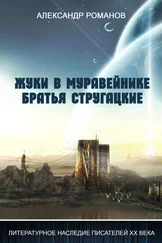

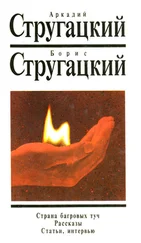


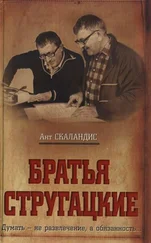
![Братья Стругацкие - Путь на Амальтею. Далекая Радуга [сборник litres]](/books/388671/bratya-strugackie-put-na-amalteyu-dalekaya-raduga-thumb.webp)
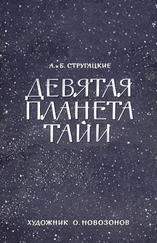
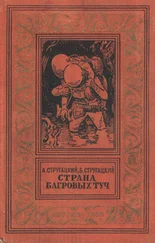
![Братья Стругацкие - Улитка на склоне столетия [сборник, litres]](/books/420353/bratya-strugackie-ulitka-na-sklone-stoletiya-sborn-thumb.webp)